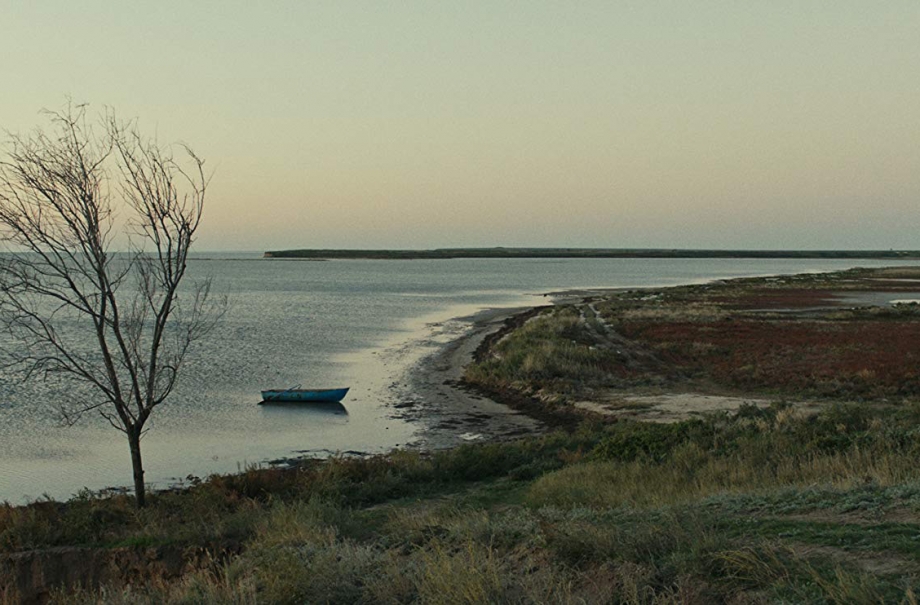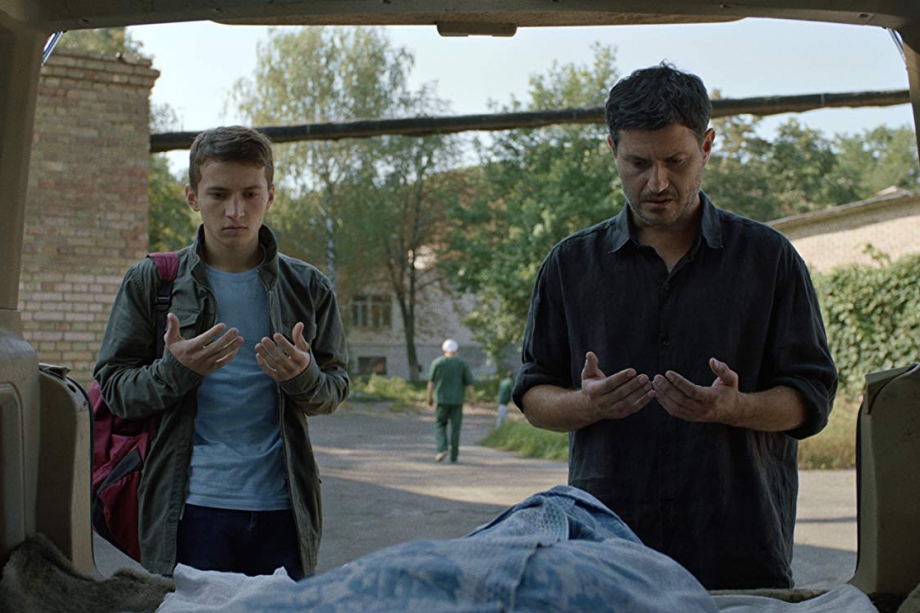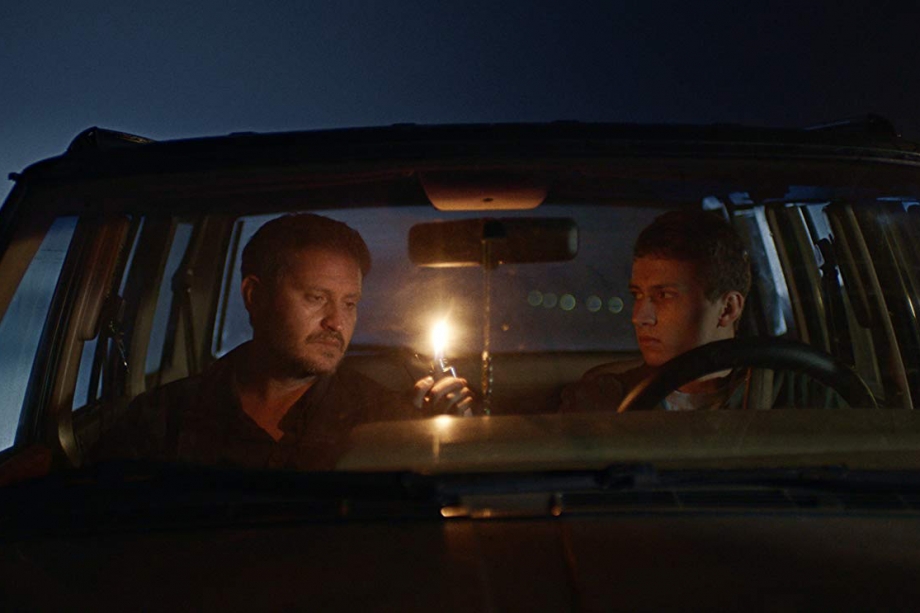



Keine sub Sektion
Ein Boot an einem Strand. Das Land ist weit, sehr weit. Links im Bild wächst ein blattloser Baum. Rechts dehnt sich der Strand aus. Das Boot erzählt die Geschichte.
Teile der Ukraine im Krieg mit Russlnagd. Ein Vater will seinen in kriegerischen Auseinandersetzungen mit Russland getöteten Sohn in der heimatlichen Erde bestatten. Er ist Krimtartar. Seine Heimat ist die Halbinsel im Schwarzen Meer. Die Krim ist derzeit auch von den Russen besetzt. Sein Sohn Amil, der in der Ukraine studiert und von den alten Geschichten eigentlich nichts mehr wissen will, begleitet ihn. Es wird eine Fahrt durch ein weites Land. Der Vater ist streng, unzugänglich und stur. Er erlaubt keine Ausgelassenheit in der Trauerzeit. Es kommt zur Auseinandersetzung mit dem Sohn. In einem einsamen Dorf werden sie bestohlen. Gemeinsam holen sie sich die Ersparnisse zurück, kommen an die Grenze, werden angehalten, überprüft. Die Fahrt scheint zu Ende zu sein, weil der Tote in einem Holzsarg liegt und nicht in einem Zinksarg.
Burials are moments of closure, yet some open old wounds. In the opening scene of Nariman Aliev’s narratively compact debut feature HOMEWARD, Alim, a Crimean-Tatar university student in Kiev, sits in the hallway of the coroner’s office, while his father Mustafa negotiates the release of the body of Alim’s brother Nazim. Nazim was killed in the Ukraine-Russia war. In this tense scene, Mustafa bribes the offcial to get his son’s body back. The two then transport Nazim in the back of their car, their journey like an obstacle course which illustrates how Crimean Tatars are treated with suspicion and sometimes contempt. The conflict revolves around two opposing forces: the power of forgetting and the power of tradition, of memory. Muslim Tatar heritage and the injustices suffered by the Crimeans, whose region has been annexed by Russia, serve as the backdrop. With stark landscapes and emotional relentlessness, Aliev depicts homeland as destiny, as a tie thicker than blood. For Alim, home is inextricably tied to the figure of his forbidding, misogynist father. Beneath the violence, passed from father to son, genuine affection struggles to emerge.



